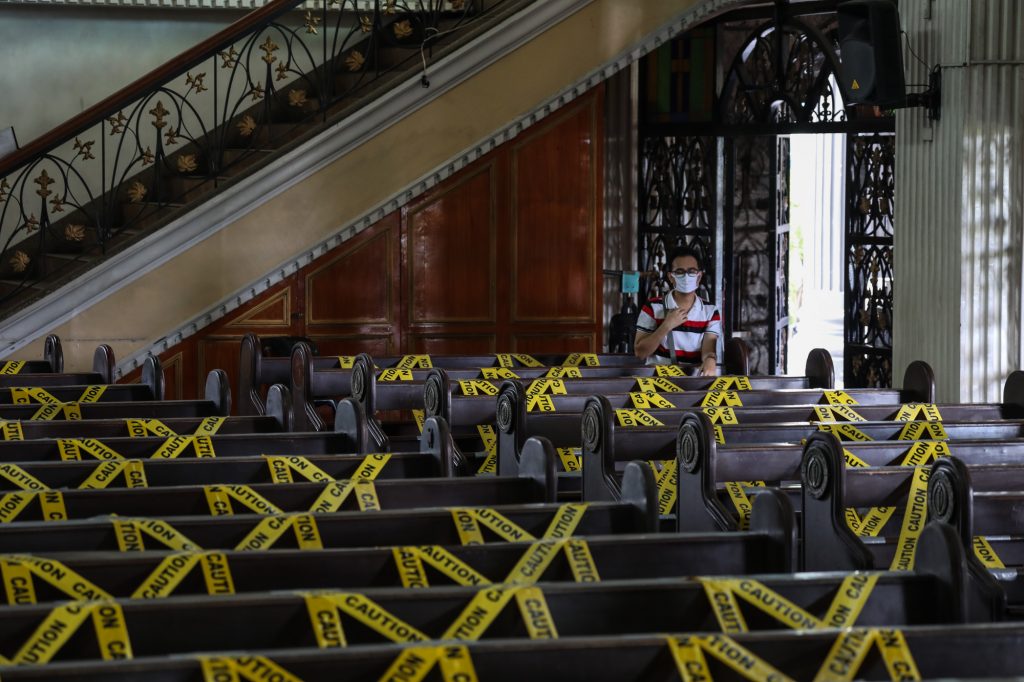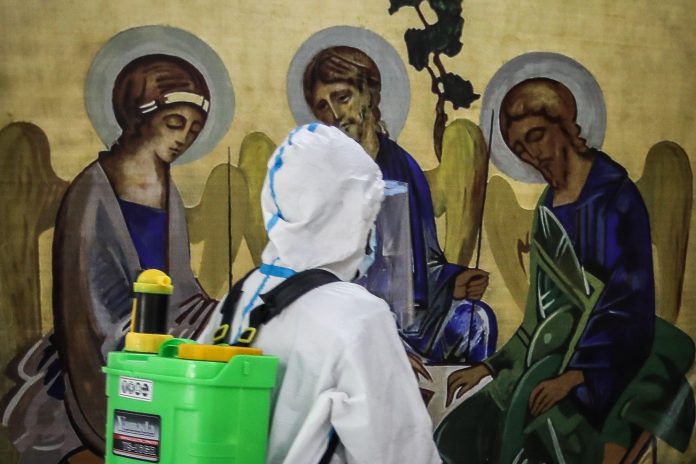HOW can the Good News and the Christian message be proclaimed in the time of the pandemic and amid the ecological crises?
The central message: God’s love for the world — for humanity and all living creatures. We are called to be in communion with the Triune God — the Father, Son and Holy Spirit — and with one another and the rest of creation.
We are all interconnected. We all have the responsibility to love, share, care for each one and for all things. We are called to conversion — this means rooting out selfishness, greed, hatred and violence.
This requires responding to the cry of the poor and the cry of the earth and promote justice, peace and integral ecology. We are also called to live a simple and sustainable lifestyle.
The social teachings of the Church as well as papal documents (e.g. Evangelii Gaudium, Laudato Si) should be studied and propagated.
Christian formation and education should emphasize servant-leadership, participative ethos, creativity rather than submissiveness. Evangelization requires being prophetic — to speak out against social evils and proclaim the coming of a new world, a new reality.
The local Church has to monitor, denounce and resist human rights violations and abuses — including totalitarian state control that diminishes freedom in the guise of containing the pandemic.
Since physical distancing is the new normal and large gathering is restricted, we have to use digital information and communication technology/social media for evangelization, catechesis and education.
This means holding online evangelization seminars and catechesis (webinars). Bible-study/Bible-sharing groups can meet online. Mass media communication should go digital and link with social media.
Each diocese and parish must develop their capabilities and come up with quality video-material that can be shared through social media in line with their respective evangelization and catechetical programs.
Face-to-face interaction should still be used but in a smaller scale, observing physical distancing and appropriate safety measures. Basic Ecclesial Communities/family-groupings can be the setting for evangelization and catechesis as well as Gospel sharing.
All these require a dialogical process as well as emphasizing story-telling.
Even with less face-to-face encounter, spiritual counselling and direction can be carried out using digital technology and social media.
Theologians should address the theological questions arising from the pandemic and the ecological crisis. They can share the fruits of their reflection online and engage in dialogue with other theologians, Church leaders and the faithful. They can also give on-line lectures or webinars.

Worship and Liturgy
Due to physical distancing, large gathering for liturgies and worship will not be possible for quite some time.
Dioceses and parishes will have to think of how regular Sunday Masses in parish churches can be celebrated with these restrictions. It could mean limiting attendance for each Mass and adding more scheduled Masses.
It could also mean celebrating small group Masses — BEC/neighborhood/family groupings, etc. This can be celebrated once every two or more months for each small group — depending on the availability of priests and the size of the parish.
A Mass for a particular a family/small-groupings/cells can be broadcast live so that other groups who are not physically present can still virtually participate and make spiritual communion.
Family liturgy/worship should be developed and promoted. The Christian family as domestic Church is a worshipping and praying community. Following the Jewish practice, family-centered rituals around the table can be adopted. Family rosary, bible-service and sharing can also be practiced by each household.
Celebration of Sunday “priest-less liturgies” or liturgies in the absence of the priest with or without communion services should be promoted in BECs, cells and family groupings for communities that cannot have regular Sunday celebration of the Eucharist.
These are usually led by lay liturgical leaders. The proliferation of permanent deacons to serve these communities should be considered especially for those who are already exercising leadership in these small communities.
This can be the context for the ongoing study and consideration about the possibility of including women in the diaconal ministry by the commission created by Pope Francis.
We have to emphasize the Vatican II teaching on the priesthood of the faithful. This means not only active participation in the liturgy but also living a life of prayer and self-sacrifice, and active charity.
We have to accept that there are situations when it is not possible to participate regularly in Sunday Eucharist.
We must de-emphasize the mentality that it is mortal sin to miss Mass on Sundays and holy days of obligation which unnecessarily create a sense of guilt and anxiety for those unable to do so due to unavoidable circumstances.
There is more to sharing in Christ’s priesthood than attending Mass.
While the Mass is the summit and fount of Christian life, its daily/weekly celebration is not the only expression of the priestly character of the Christian community.
The real presence of Christ is not exclusively manifested in the Eucharist but also in other community prayer and worship when the faithful gather in Jesus’ name and in the Word that is proclaimed and shared.
What matters most is not the frequency of the celebration of the Eucharist but how it is celebrated with a community that truly lives a life of communion with Christ and with one another in their day to day life.
The role of the ordained minister is to lead and enable active participation of the lay faithful in the Church’s priestly mission. But we have to avoid clericalism that posits that only the ordained minister alone can make the Church a truly priestly/worshipping community and that the Eucharist is the only form of prayer and worship.
The Church will continue to survive without frequent/regular Sunday Mass in communities due to the shortage of priests or restrictions imposed by circumstance (e.g. pandemic, persecutions, etc.).
A life of holiness among the members as well as the capacity for self-sacrifice and martyrdom that accompany participation in communal liturgy characterize the fullness of priesthood of the faithful.
Father Amado Picardal is a Filipino Redemptorist priest who holds a doctorate in theology from the Gregorian University in Rome. He has lived a life of solitude as a hermit after an active life as missionary, professor, promoter of Basic Ecclesial Communities, and peace and human rights advocate. He is currently executive co-secretary of the Commission for Justice, Peace and Integrity of Creation in Rome.









